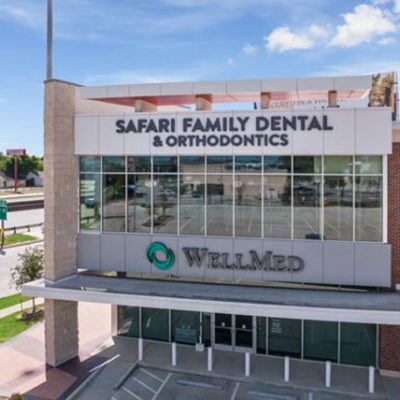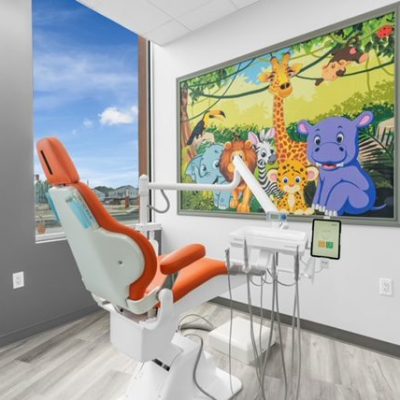Why We May Advise An Extraction and What To Expect
Keeping your natural teeth is the healthiest thing you can do for your oral health, but sometimes an extraction is inevitable. Before this step is taken, you can expect your dentist to try to save the tooth or recommend orthodontic work in the case of misalignment and poor bite. What follows is a list of the most common reasons our team may suggest an extraction:
- Dental Crowding – If you were born with too many teeth, or your mouth isn’t able to support the average number of teeth, an extraction may be called for. In some cases, patients have teeth that are simply too large for the space they have available, or a tooth may be unable to erupt and become impacted.
- Infection – Once tooth decay has advanced to the point that it’s affecting the pulp, it may be necessary to have it extracted. Generally speaking, your dentist will suggest a root canal before taking this step, but if the tooth is too far gone, it’s time for an extraction.
- Immunocompromised Patients – In cases where a patient has a compromised immune system, such as with chemotherapy or before an organ transplant, an extraction may be necessary if the tooth is infected. Advanced gum disease, known to most as periodontitis, is an example of a case where this may be necessary for immunocompromised patients.
- Coverage Concerns – In some cases, a procedure that could save the tooth isn’t covered by the patient’s insurance, and other financing options are not available. If this is the case, an extraction may be the last option available to resolve a painfully infected tooth. We work with our patients to try to avoid this eventuality.
One reason that our team will work to preserve your natural teeth is the effect missing teeth have on your oral health. It’s more than an aesthetic issue. Every tooth in our mouth serves to carry a part of the workload for every other tooth and serves as a support that ensures they don’t slip out of place. They also play an important role in preserving the strength and integrity of your jawbone. When teeth are lost, the jawbone becomes more susceptible to thinning and demineralization.
What To Expect During An Extraction
Getting an extraction is a relatively straight-forward and painless process that you can drive home after. In more difficult extractions, it may become necessary to undergo surgery. This is most often the case when a tooth has been unable to erupt due to insufficient room, such as when wisdom teeth are involved. Reach out to our office staff to schedule an appointment and consultation to get further information about tooth extractions at our clinic.
Why We May Advise An Extraction and What To Expect
Keeping your natural teeth is the healthiest thing you can do for your oral health, but sometimes an extraction is inevitable. Before this step is taken, you can expect your dentist to try to save the tooth or recommend orthodontic work in the case of misalignment and poor bite. What follows is a list of the most common reasons our team may suggest an extraction:
- Dental Crowding – If you were born with too many teeth, or your mouth isn’t able to support the average number of teeth, an extraction may be called for. In some cases, patients have teeth that are simply too large for the space they have available, or a tooth may be unable to erupt and become impacted.
- Infection – Once tooth decay has advanced to the point that it’s affecting the pulp, it may be necessary to have it extracted. Generally speaking, your dentist will suggest a root canal before taking this step, but if the tooth is too far gone, it’s time for an extraction.
- Immunocompromised Patients – In cases where a patient has a compromised immune system, such as with chemotherapy or before an organ transplant, an extraction may be necessary if the tooth is infected. Advanced gum disease, known to most as periodontitis, is an example of a case where this may be necessary for immunocompromised patients.
- Coverage Concerns – In some cases, a procedure that could save the tooth isn’t covered by the patient’s insurance, and other financing options are not available. If this is the case, an extraction may be the last option available to resolve a painfully infected tooth. We work with our patients to try to avoid this eventuality.
One reason that our team will work to preserve your natural teeth is the effect missing teeth have on your oral health. It’s more than an aesthetic issue. Every tooth in our mouth serves to carry a part of the workload for every other tooth and serves as a support that ensures they don’t slip out of place. They also play an important role in preserving the strength and integrity of your jawbone. When teeth are lost, the jawbone becomes more susceptible to thinning and demineralization.

What To Expect During An Extraction
Getting an extraction is a relatively straight-forward and painless process that you can drive home after. In more difficult extractions, it may become necessary to undergo surgery. This is most often the case when a tooth has been unable to erupt due to insufficient room, such as when wisdom teeth are involved. Reach out to our office staff to schedule an appointment and consultation to get further information about tooth extractions at our clinic.





















